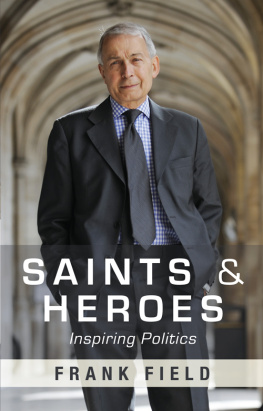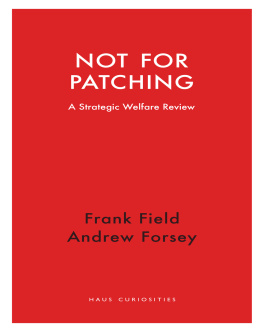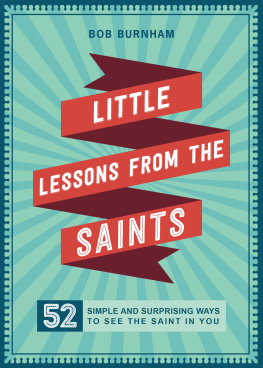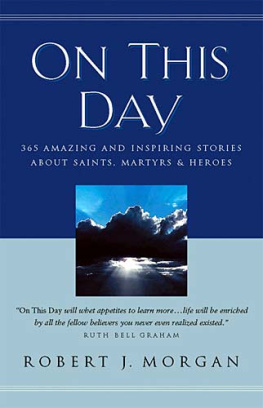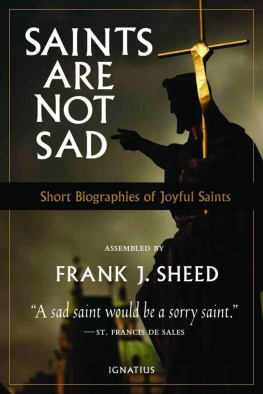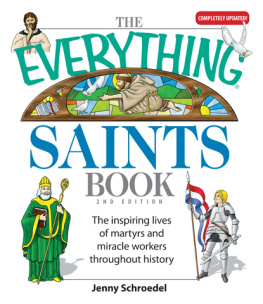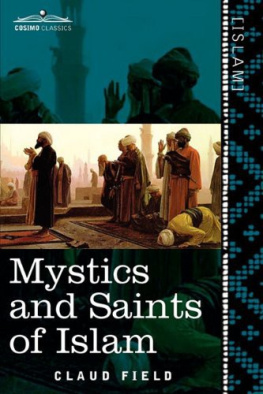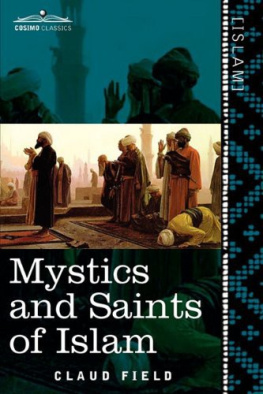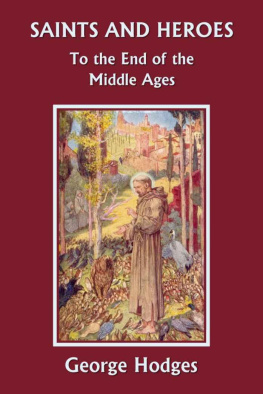Frank Field has been the MP for Birkenhead since 1979. He chairs the Cathedrals Fabric Commission for England, and is the author of a number of books including, most recently, Attlees Great Contemporaries (2009).
First published in Great Britain in 2010
Society for Promoting Christian Knowledge
36 Causton Street
London SW1P 4ST
Copyright Frank Field 2010
All rights reserved. No part of this book may be reproduced or transmitted in any form or by any means, electronic or mechanical, including photocopying, recording, or by any information storage and retrieval system, without permission in writing from the publisher.
SPCK does not necessarily endorse the individual views contained in its publications.
British Library Cataloguing-in-Publication Data
A catalogue record for this book is available from the British Library
ISBN 9780281061877
E-ISBN 9780281065578
1 3 5 7 9 10 8 6 4 2
Typeset e-book byGraphicraft Limited, Hong Kong
Printed in Great Britain by Ashford Colour Press
Produced on paper from sustainable forests
All but one of these essays were given as talks or lectures or written as reviews over the past 15 years or so. I have edited them into a book and added a new essay on William Beveridge. That there are no essays on any other of my heroes, such as R. H. Tawney and Clement Attlee, is partly because I have yet to be asked to speak on Tawney (a reflection of New Labours lack of ideological roots, perhaps) and I have elsewhere used the opportunity of bringing together 30 of Attlees reviews in Attlees Great Contemporaries (London: Continuum, 2009) to set out my admiration for his character and dignified style of democratic leadership.
Jill Hendey, my secretary, transcribed the essays into publishable form, Damian Leeson read through the whole manuscript, questioned lines of thought and much sharpened up its presentation, and Ruth McCurry and Liz Jones have set exacting standards editing the text and making numerous helpful suggestions and additions. I am grateful for the efforts of all three individuals but I remain wholly responsible for the opinions, judgements and any errors that remain.
All six of my heroes had a view about what kind of leadership is necessary in a democracy. That leadership was in part provided by the character of those who aspired to high office. It also came from a group singing from the same hymn sheet, by which I mean that they all signed up to a public ideology built around the ideas and beliefs of English Idealism.
The public ideology of English Idealism
Some people may ponder whether Frederick Temple appears too early on the scene to have helped directly in the development of the English Idealist tradition that formed this near universally accepted public ideology, but he was very much part of what is called the broad church movement from which Idealism sprang. Frederick also helped foster an intellectual tradition that saw history teaching the great truths, and it was this insight that T. H. Green, the father of English Idealism, developed so effectively by using the eye of history to reassert them.
Greens brilliance was manifest in a number of forms. He faced head-on the causes of the doubt beginning to undermine the intellectual hegemony that was such a measurable feature of British society up until the middle years of Victorias reign. Part of Greens achievement was to separate the kernel of Christian belief, which had for well over 1,000 years acted as our public ideology, from an adherence to the literal truth of the Gospel miracles.
In one fell swoop he gained support from three disparate groups. There were those I might call the traditionalists, who were pleased to have an advocate who took their message on to the front foot once again.
For a hundred years or so we were all beneficiaries of Greens brilliance. With little or no conscious effort on our part, most citizens knew what lifes overall aim was to achieve ones best self. They also knew that this goal could not be secured unless those people around us, and not only those whom we love, are similarly committed. All of my heroes from Frederick onwards carried out their public life without having to explain, let alone defend, these basic rules of the game. And this remained true irrespective of whether they were believers or agnostics.
The most religious of my heroes, William Temple, was as much a disciple of Green as were the sceptics like Eleanor Rathbone and William Beveridge. Temples social programme owed everything to Green and to his interpretation of Christian social duties, and Temples own social message gained only passing support from his carefully crafted religious philosophy. Eleanor Rathbone was schooled in Green as an Oxford undergraduate and lived out her life renewing Greens conception of an active citizenry. William Beveridge, similarly, came to his ideas of a self-governing citizenry partly by drawing on the civil republican tradition that bubbles along as part of our own political culture. Beveridge was a beneficiary of Greens actions, as the initiator of Idealism did much to encourage an overflowing of this republican tradition back into the mainstream of political thinking here in the UK.
Our political agenda today is back to the one Frederick Temple carved out with such resolution and foresight. If our society is to resume its journey on the road to greater progress we have to regroup around Fredericks insight into education, namely that offering individuals a chance to fulfil their best selves also, crucially, offers the most secure way to advance society as a whole. There is, however, one crucial difference between Fredericks time and our own. While the Christian orthodoxy that Frederick espoused was safely refashioned into a public ideology of Idealism, we now live in a world where that tradition has ceased to be renewed in any meaningful and relevant way.
This agreement about objectives no longer exists in our society. The cutting edge of English Idealism has been replaced by a series of much softer stances centring around the goal of happiness and well-being. But these generalized expressions of intent provide no structure for our corporate lives. Nor are we given a necessary social compass for their implementation.
Britain now has no agreed public ideology. We have torn up the hymn sheet. The most dramatic reported example I have come across on how society has ceased to sing from the same hymn sheet was provided for me when I visited Australia, whose society faces the same fundamental weakness as we do. In October 2005, a Sydney magistrate dismissed a case brought against a youth who had drunkenly sworn obscenities at the police in a public street. Rubbing salt into the wound, she ordered the police to pay the offenders costs of $2,600. She told the court, I am not sure there is such a thing as community standards any more.
Here is another crucial difference between the world in which we live and that inhabited by my six heroes. Then it was not just the elite who shared an agreed hymn sheet. Practically all of us knew the tunes and were enthusiastic singers. Mr Attlee was the last prime minister who consciously thought of himself as belonging to the Idealist tradition, even if he had renounced Idealistic reasoning as no better than the mumbo-jumbo of Christianity, which he rejected so early on in his adult life.





